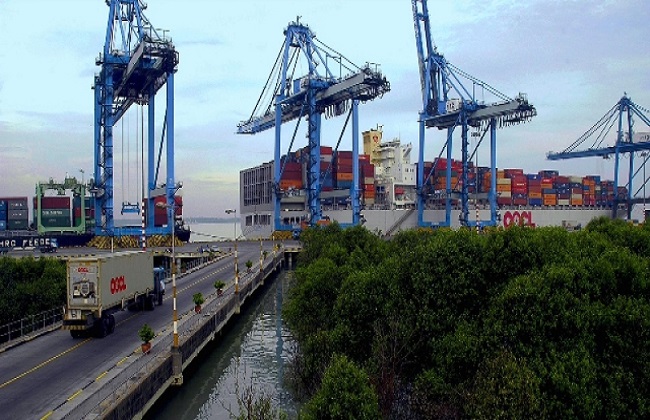
The government has undertaken a series of medium-term (2025-26) reforms aimed at bolstering macroeconomic stability and promoting long-term growth apart from immediate policy responses due to the global and national economic contexts.
The main objectives of these reforms include enhancing revenue generation, reducing the borrowing costs of the public sector, curbing subsidies, and improving spending efficiency through fiscal institutional reforms, according to an official budgetary document.
These reform initiatives have been developed through consultations and negotiations with the stakeholders.
The overarching strategy is to strengthen the external balance and rebuild reserves while gradually easing the measures implemented for demand and import management on a temporary basis.
Moreover, the document mentioned, fiscal sustainability will be reinforced by maintaining the budget deficit and public debt within acceptable limits.
“This will be achieved through the introduction of more efficient expenditure management practices and increased investment in priority sectors such as social welfare and development spending,” it said.
The document said that Bangladesh will continue to pursue a prudent fiscal policy stance keeping a careful eye on the budget deficit (both primary and overall), financing mix, and public and publicly guaranteed debt level.
In the medium term, the policy will be anchored by the target to keep the primary fiscal deficit (including grants) within around 3.3 percent of GDP to contain public debt below 45 percent of GDP.
In addition to raising expenditures on development and social safety net programs, there will be initiatives to rationalise subsidies and domestic debt financing costs.
The reform initiatives in the governance of social safety net programs, such as improvement in targeting, rationalisation of coverage, use of the government-to- person (G2P) systems, the introduction of a universal pension system, etc., will continue in the medium term.
The Universal Pension Management Bill, 2023 has already passed in parliament aimed at bringing the country’s growing elderly population under a universal pension scheme
Finance Minister AHM Mustafa Kamal in his budget speech said that the government has planned to launch a universal pension system from FY2023-24. Under the proposed scheme, a beneficiary can enjoy pension benefits subject to the payment of subscription up to the age of 60 years if s/he enrolls at the age between 18 to 50 years, whereas those who enroll at their age of more than 50 years have to pay subscription for a minimum of 10 years.
The expatriate Bangladeshis will be able to participate in this scheme. If the pensioner dies before attaining the age of 75 years while on pension, the nominee of the pensioner will be entitled to the pension for the remaining period of the pensioner’s completion of 75 years.
If the subscriber dies before paying the subscription for at least 10 years, the deposited money will be returned to the nominee along with the profit. Besides, the amount received as a monthly pension will be exempted from income tax.
Bangladesh’s tax-GDP ratio is one of the lowest in the world.
“This is working as a strong constraint in expanding the budget allocation in critical sectors and exploiting the growth potential to the fullest,” the document said.
Hence, the government has initiated several policy and administrative reforms on the revenue side focusing on the modernisation of the system of income tax and VAT following the best practices.
Key areas for policy reforms include modernizing tax laws, rationalizing tax expenditures, simplifying the tax rate structure, and broadening the tax base as part of an overarching strategy of shifting the tax burden from trade-related taxes toward income and value-added taxes.
On the administrative side, key reforms include establishing compliance risk management units within the National Board of Revenue and implementing a compliance improvement plan, strengthening information sharing between the income tax, VAT, and customs wings of NBR, progressively expanding and integrating automation in tax administration, increasing at-source tax collection, etc.
The reforms are expected to generate additional revenue by 0.5 percent of GDP annually in FY 2023-24 and FY 2024-25 and 0.7 percent of GDP in FY 2025-26.
The document said that the government has taken steps to rationalise energy subsidies and allocate required funds for social and development expenditures.
The increase in petroleum prices in August 2022 was intended to match international prices, and to reduce the amount of subsidy.
To ensure a systematic approach, the government is going to introduce a periodic formula-based automatic fuel price adjustment mechanism, which is expected to eliminate the need for subsidies on petroleum products.
Moreover, the government is focusing on untapped areas in the tax-revenue sector to enhance overall revenue while also emphasising non-tax revenue sources.
Several reform measures have been implemented including the reduction of interest rates of saving certificates, the introduction of tiered interest rates, capping issuances, and increasing taxes on earned interest, all aimed at reducing the government’s interest expenditure.
In FY 2021-22, the contribution from national savings certificates accounted for 0.5 percent of GDP, a decrease from 1.2 percent in FY 2020-21.
Efficient cash management is also a priority to save public funds by minimising interest expenditure.
To achieve this, the government is strengthening and expanding the Treasury Single Account (TSA), which is expected to facilitate better cash management, reduce interest expenses, and improve commitment controls, the document said.


